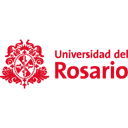This course is part of Retos y desafíos de los mercados laborales en Latinoamérica.
This course addresses one of the major challenges facing labor markets: inclusion. It focuses on expanding participation in paid work under decent conditions for population groups considered disadvantaged or vulnerable. Students will explore inclusion policies aimed at closing opportunity gaps in labor markets and ensuring access for these groups. The course examines inclusion initiatives benefiting youth, women, people with disabilities, reintegrating individuals, armed conflict victims, Afro-descendants, indigenous people, and populations in poverty. Designed to provide tools for independent research, the course enables students to analyze, evaluate, develop, and manage public policies related to labor inclusion from multiple perspectives: group differences, changes in wage structure and inequality, investment in human development, and mobility and migration.
Instructors:
Spanish
Español
What you'll learn
Understand the dynamics of inclusion for different population groups that characterize the labor market from a theoretical perspective Learn to model and analyze labor market structure and frictions regarding labor inclusion Discover evaluation criteria for public policies on labor inclusion based on theory and empirical evidence Master calculation of models and indicators using primary and secondary information sources commonly used in labor market analysis
Skills you'll gain
This course includes:
PreRecorded video
Graded assignments, exams
Access on Desktop, Mobile, Tablet
Limited Access access
Shareable certificate
Closed caption
Get a Completion Certificate
Share your certificate with prospective employers and your professional network on LinkedIn.
Created by
Provided by

Top companies offer this course to their employees
Top companies provide this course to enhance their employees' skills, ensuring they excel in handling complex projects and drive organizational success.





There are 4 modules in this course
This course explores inclusive labor markets with a focus on expanding participation in paid work under decent conditions for disadvantaged or vulnerable populations. Students will examine theoretical perspectives on inclusion dynamics for different population groups, learning to model and analyze labor market structures and frictions related to labor inclusion. The curriculum covers evaluation criteria for public policies on labor inclusion in light of theory and empirical evidence, teaching students to calculate models and indicators using primary and secondary information sources commonly used in labor market analysis. Key topics include group differences in the labor market, types of discrimination, wage differentials, salary gaps, human capital investments, and labor mobility and migration. Throughout the course, students gain practical tools for developing independent research on inclusive labor markets, with an emphasis on analyzing and implementing effective public policies.
Diferencias entre grupos en el mercado laboral
Module 1
Diferenciales salariales
Module 2
Inversiones en capital humano
Module 3
Movilidad laboral y migración
Module 4
Fee Structure
Individual course purchase is not available - to enroll in this course with a certificate, you need to purchase the complete Professional Certificate Course. For enrollment and detailed fee structure, visit the following: Retos y desafíos de los mercados laborales en Latinoamérica
Payment options
Financial Aid
Instructors

2 Courses
Economist & Professor at Universidad del Rosario
Darwin Cortés is an economist with advanced degrees from Universidad Nacional de Colombia and a PhD in Economics from the University of Toulouse, France. He is currently an Associate Professor at Universidad del Rosario’s Faculty of Economics. His academic expertise lies in quantitative methods, development economics, political economy, and the socioeconomic impact of public policy. He has authored influential studies on education, health, early interventions, labor markets, and inequality in Latin America. Notable research includes work on information transmission and crime, regional inequality in Colombia, and long-term effects of conditional cash transfers and early childhood programs. As a key figure in the EFI labor alliance under Colombia Científica, Darwin brings real-world insights to his edX courses on Latin American labor markets.

2 Courses
Labor Market Researcher & Economist
Diana Isabel Londoño Aguirre is a labor economist with degrees from Universidad de Antioquia and a master’s in Economics from Universidad del Rosario. She currently serves as a researcher at Universidad del Rosario and a technical expert for the World Bank, focusing on labor market issues. Diana has contributed to key national studies on social welfare dynamics and regional wage gaps in Colombia. Her academic work includes a notable thesis on occupational wage premiums and regional disparities, and she has collaborated with Colombia’s Public Employment Service and Ministry of Labor. On edX, she teaches in the URosarioX series, offering courses on inclusive and Latin American labor markets.
Testimonials
Testimonials and success stories are a testament to the quality of this program and its impact on your career and learning journey. Be the first to help others make an informed decision by sharing your review of the course.
Frequently asked questions
Below are some of the most commonly asked questions about this course. We aim to provide clear and concise answers to help you better understand the course content, structure, and any other relevant information. If you have any additional questions or if your question is not listed here, please don't hesitate to reach out to our support team for further assistance.



